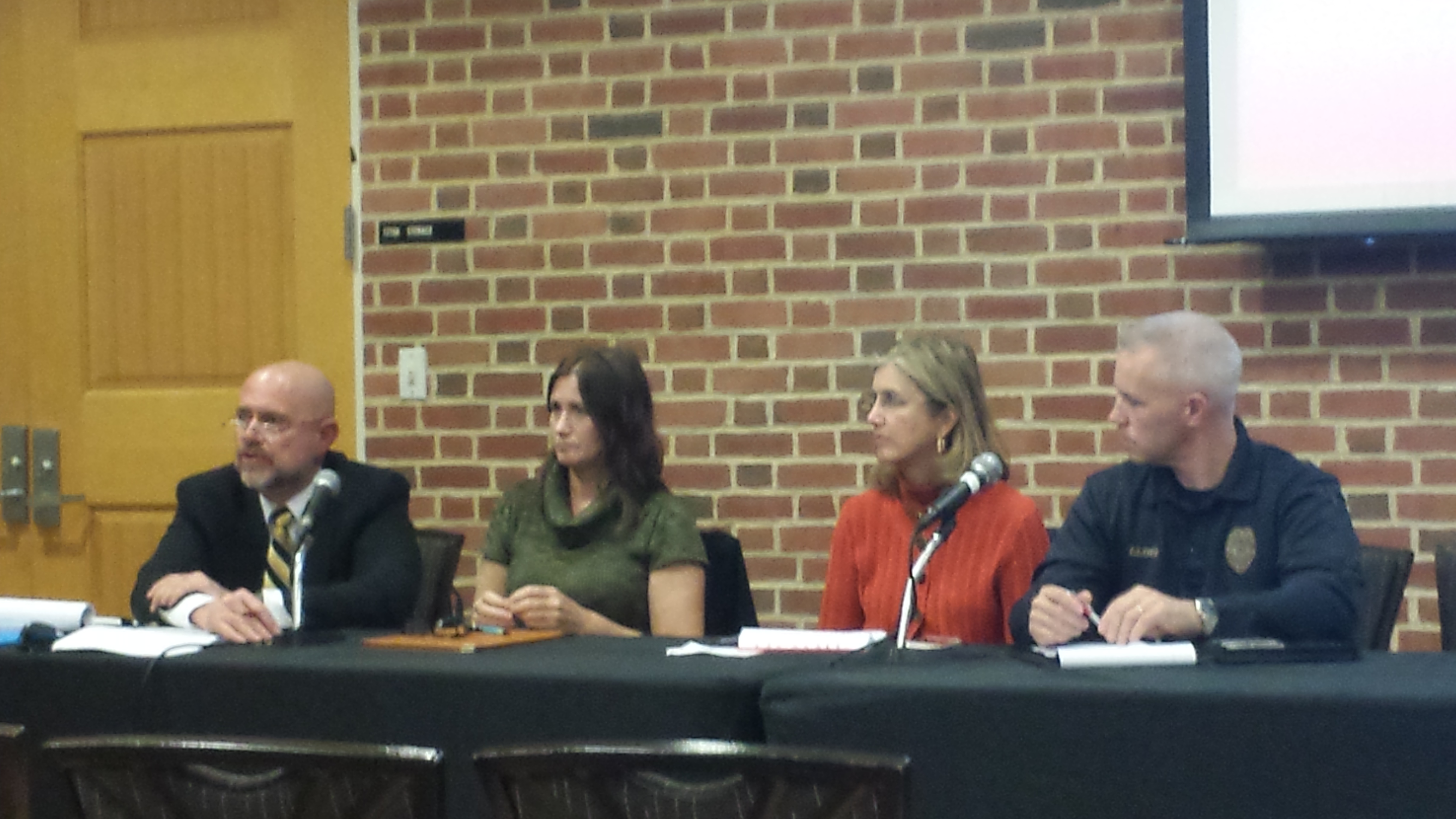The University of Maryland’s new Joint President/Senate Task Force on Sexual Assault Prevention held its first open forum on Thursday afternoon in Stamp Student Union, where students expressed a mix of suggestions and frustrations regarding this university’s current sexual harassment policies and sexual assault prevention training.
Eleven of the task force’s 16 members, led by Joint Task Force Chair Steve Petkas, were present to hear input from members of the campus community. About 50 people came to listen to or address the group, which consisted of four undergraduates, one graduate student, and faculty and staff.
University President Wallace Loh announced in a Nov. 8 email the task force’s creation to “propose a comprehensive strategy” to address sexual assault. It comes after a similar 2013 task force, the Joint President/Senate Sexual Harassment Task Force, which established the Office of Civil Rights and Sexual Misconduct in March 2014 and was disbanded afterward.
Cairan George identified herself as a victim of two cases of sexual harassment this semester and said she was unhappy with how each situation was handled. She suggested better lighting and more surveillance cameras across the campus, and noted that some UMD Alert emails about sex-related crimes are carelessly written and aren’t sensitive to victims.
“The person who was affected is going to get that email just as much as the rest of the campus,” she said. “If they go into class, they don’t want to hear someone going, ‘Hey, did you hear about that girl this morning? Oh my God, that’s so funny.'”
Molly Raulin echoed this sentiment when telling the task force why she didn’t report a case of sexual harassment this semester that she called a “tragic event.”
“I didn’t want to report it because I didn’t want to be one of those UMD Alert girls,” said Raulin, a senior family science major. “I totally agree that the way that they’re worded can sometimes be insensitive.”
Petkas thanked Raulin for sharing her experience, admitting that, “It’s horrifying to us that an unintended consequence of our efforts actually left you feeling like you did not want to report.”
Ashley Vasquez, a junior sociology major, asked the task force to consider allowing sexual assault survivors to provide the group with input anonymously.
“I have a friend who’s a sexual assault victim, and she wants to help out with this committee, but she’s afraid to come [to the open forum] because she can’t even bear to speak about it in person,” Vasquez said.
Natasha Seraj, Graduate Student Government vice president of legislative affairs, also asked the task force to be more aware of graduate students’ particular needs. Graduate students sometimes deal with a different set of sexual assault issues than undergraduates do, such as domestic abuse in the case of married students, she said. Only one graduate student is on the task force.
“Especially if you’re trying to aim [to be] ‘comprehensive,’ you probably want to include a third of your population at the university,” said Seraj, a biochemistry doctoral student.
Several who spoke said mandatory in-person sexual assault prevention training would be more beneficial for students than online training. Students currently complete a training course online over the summer before their freshman year. Some asked about improving training the faculty receives as well.
Alanna DeLeon, president of the student group Preventing Sexual Assault, criticized Loh’s role in the university’s ongoing process to address sexual harassment issues.
“How do we expect the students on this campus to care about this issue if the person leading this campus doesn’t care about this issue? I think that it has to be a top-down effect,” DeLeon said. “And something that I want to know is does President Loh even take a training? Does he himself take a training about sexual assault? How can he lead your task force when most of you guys are probably more educated than him on this issue? It’s really upsetting.”
Loh has previously taken public stances to combat sexual assault on the campus. Loh requested in 2015 that this university’s Title IX office provide a public report of cases and outcomes so the community knows how administrators handle these issues, according to a November 2015 Diamondback article.
“We should be a campus free from any sexual assaults,” Loh said.
He also told the Residence Hall Association Senate on Tuesday that he is in the midst of a lawsuit regarding a student’s expulsion for sexual assault.
“My commitment, I want to tell you, goes beyond providing resources for our office,” Loh said. It is putting myself on the line in this way.”
The task force will update the University Senate on its progress early next semester and make a final report on what they will recommend, if anything, in April.



